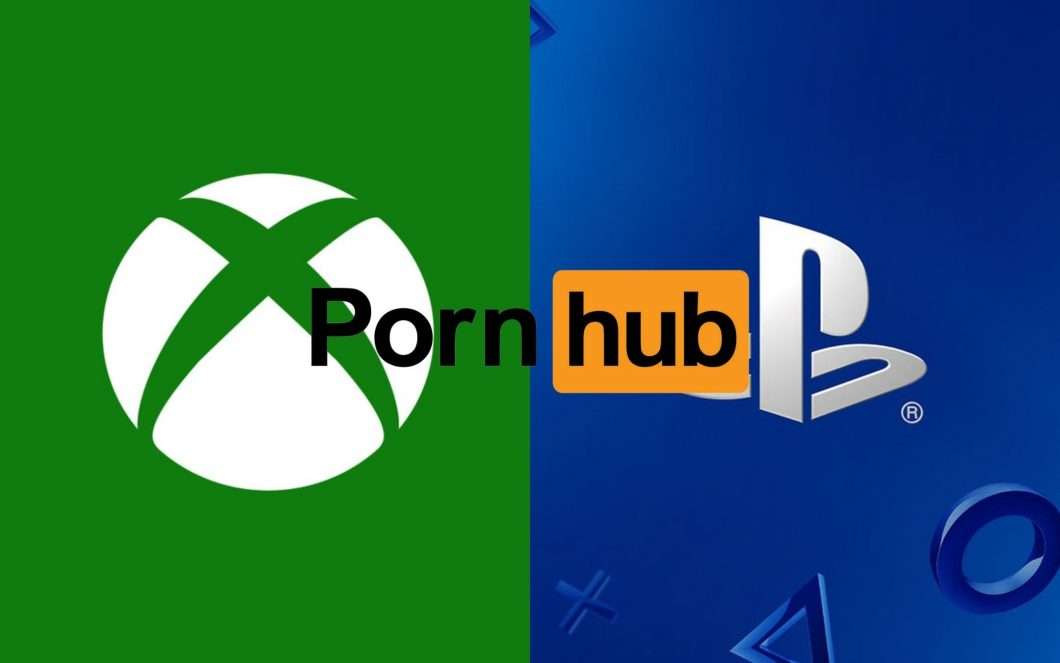Visa and Mastercard Cut off Pornhub after Report Of Unlawful Videos
작성자 정보
- Karolyn Coyne 작성
- 작성일
본문
 By Adi Robertson, a senior tech and coverage editor centered on VR, on-line platforms, and free expression. Visa and Mastercard will cease processing payments on Pornhub following a report that discovered unlawful content on the site. Reuters reported that Mastercard will finish support for Pornhub after confirming the presence of "unlawful content." Visa stated its own investigation is ongoing, but it should suspend fee processing for the time being. The decisions come as Pornhub is making substantial adjustments to how it moderates content. "Today, the use of our playing cards at Pornhub is being terminated. Our investigation over the past several days has confirmed violations of our requirements prohibiting unlawful content material on their site," Mastercard spokesperson Seth Eisen tells The Verge. "As a outcome, and in accordance with our policies, we instructed the monetary institutions that connect the location to our network to terminate acceptance. Pornhub finds the cutoffs "exceptionally disappointing, as they come simply two days after Pornhub instituted essentially the most far-reaching safeguards in user-generated platform history," a spokesperson tells The Verge.
By Adi Robertson, a senior tech and coverage editor centered on VR, on-line platforms, and free expression. Visa and Mastercard will cease processing payments on Pornhub following a report that discovered unlawful content on the site. Reuters reported that Mastercard will finish support for Pornhub after confirming the presence of "unlawful content." Visa stated its own investigation is ongoing, but it should suspend fee processing for the time being. The decisions come as Pornhub is making substantial adjustments to how it moderates content. "Today, the use of our playing cards at Pornhub is being terminated. Our investigation over the past several days has confirmed violations of our requirements prohibiting unlawful content material on their site," Mastercard spokesperson Seth Eisen tells The Verge. "As a outcome, and in accordance with our policies, we instructed the monetary institutions that connect the location to our network to terminate acceptance. Pornhub finds the cutoffs "exceptionally disappointing, as they come simply two days after Pornhub instituted essentially the most far-reaching safeguards in user-generated platform history," a spokesperson tells The Verge.

 Pornhub came underneath hearth after The brand new York Times reported discovering nonconsensual pornography, recordings of assault, and videos of underage ladies on the location. The corporate called claims that it allows youngster sexual abuse material "irresponsible and flagrantly unfaithful." Soon after, nonetheless, Pornhub banned uploads by unidentified users and blocked downloading movies from the positioning. Payment processing giants Visa and Mastercard confirmed earlier this week that they were conducting unbiased investigations of Pornhub content. "When we establish unlawful exercise, our coverage is to ask the acquirer to terminate the connection, unless an efficient compliance plan is put in place," Mastercard advised The brand new York Times. Visa said that it was "actively engaging with the related financial institutions," as well as Pornhub’s guardian company MindGeek. Now, both firms have taken motion. Update December 10th, 5:45PM ET: Visa has now suspended Pornhub, too. This story has been up to date to mirror the announcement, and an announcement from Pornhub has been added.
Pornhub came underneath hearth after The brand new York Times reported discovering nonconsensual pornography, recordings of assault, and videos of underage ladies on the location. The corporate called claims that it allows youngster sexual abuse material "irresponsible and flagrantly unfaithful." Soon after, nonetheless, Pornhub banned uploads by unidentified users and blocked downloading movies from the positioning. Payment processing giants Visa and Mastercard confirmed earlier this week that they were conducting unbiased investigations of Pornhub content. "When we establish unlawful exercise, our coverage is to ask the acquirer to terminate the connection, unless an efficient compliance plan is put in place," Mastercard advised The brand new York Times. Visa said that it was "actively engaging with the related financial institutions," as well as Pornhub’s guardian company MindGeek. Now, both firms have taken motion. Update December 10th, 5:45PM ET: Visa has now suspended Pornhub, too. This story has been up to date to mirror the announcement, and an announcement from Pornhub has been added.
Inventions that have been forward of their time can help us to grasp whether we're really ready to live on the earth we are making. Speculative fiction fans know that you can create a whole world out of just a handful of objects. A lightsaber can begin to describe a whole galaxy far, far away; a handheld communicator, phaser, and pill can depict a star-trekking utopia; a black monolith can stand in for an entire alien civilization. World-building isn’t about creating imaginary worlds from scratch - accounting for his or her each detail - but hinting at them by highlighting mere sides that characterize a coherent reality beneath them. If that reality is convincing, then the world is inhabitable by the imagination and its tales are endearing to the center. Creating objects in the real world is nearly precisely the identical; that’s why invention is a threat. After we create one thing new - actually, categorically, conceptually new - we place a wager on the balance of support it can have on the earth during which it emerges and the power it should remake that world.
When a product fails because it was "ahead of its time," that usually signifies that its makers succeeded at world-constructing, not invention. It may very well be argued that Jean-Louis Gassée, not Jony Ive, invented the tablet computer, even though his Newton MessagePad failed quickly after it launch in 1993 and is now principally forgotten. In hindsight, it’s straightforward to see why Ive’s pad succeeded the place Gassée’s didn't: twenty years of technological development offered better hardware, screens, batteries, software, and connectivity. And though anyone enthusiastic about a pill had probably been prepared for one since even earlier than the MessagePad thanks to the Star Trek universe being full of PADDs, the one thing that basically prepared the world for the tablet laptop was the mobile phone. In 1993, hardly anyone had a mobile phone. By 2010, 5 billion people used them. A world in which over 70% of its population is already accustomed to cellular computing is one ready for a bridge device between a small mobile display and a big stationary one.
The Newton MessagePad, of course, isn’t alone. So many merchandise and technologies which might be commonplace right this moment made their debuts in products that didn’t truly succeed. Not because they weren’t good concepts, but as a result of the world wasn’t fairly prepared and so they weren’t powerful enough to make it so. The Nintendo Power Glove anticipated gestural interfaces and controls nearly 15 years earlier than Minority Report informed us all to expect them… ’re nonetheless not there. Microsoft’s Zune wasn’t the primary portable MP3 participant, of course; that distinction goes to the fully unknown MPMan F10, released in 1997. It also wasn’t the first actually good or actually profitable one; the iPod actually ought to get the credit score for that. But, it did threat its identity on a monthly subscription music service that the MP3 hoarders it was offered to simply weren’t prepared for. Google Glass was launched in 2013 and died a humiliating but quick death after a widely known tech bro wore it within the shower, reminding the world that face-mounted computers are made for a reality a lot creepier than any of us want.
관련자료
-
이전
-
다음







